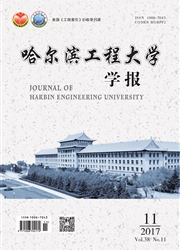

 中文摘要:
中文摘要:
非保守系统的广义拟变分原理在求解科学和工程问题的解析解和近似解方面有广泛的应用前景.由保守系统的最小余能原理出发,并考虑伴生力的特性,分别采用加零变换法和变积方法推导适用于弹性结构系统的广义拟余能原理.并将该原理应用于流固耦合问题,给出同时求解结构的内力和变形两类变量的计算方法.广义拟余能原理的建立为非保守系统的有限元计算提供了重要的理论依据.
 英文摘要:
英文摘要:
The generalized quasi-variational principle for non-conservative systems has great potential for analytical and approximate solutions for problems in science and engineering. Starting from the minimum complementary energy principle, then considering the characteristic of fellow forces, the generalized quasi-complementary energy principle that is suitable for elastic structural systems was obtained by transformation of the zero-addition method and the variational integral method. Appling this principle to the liquid-solid coupling problem, the calculation method is solving two kinds of variables simultaneously - structural internal forces and deformations. The generalized quasicomplementary energy principle provides a theoretical basis for finite-element calculation in non-conservative systems.
 同期刊论文项目
同期刊论文项目
 同项目期刊论文
同项目期刊论文
 期刊信息
期刊信息
